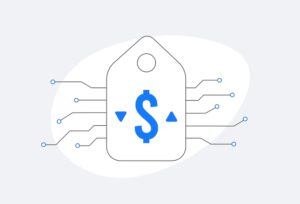 The lines tend to be blurry between affiliate and referral marketing, the confusion leads to inefficient campaigns that often never even get off the ground.
The lines tend to be blurry between affiliate and referral marketing, the confusion leads to inefficient campaigns that often never even get off the ground.
Do a few Google searches, and there is plenty of solid content geared toward people who offer strategies to get rich quick and make money online with affiliate marketing. As marketers know, it’s not as easy as it sounds. Affiliate marketing is a business—it takes an engaged audience, testing, search engine optimization, and much more.
With affiliate marketing, the advocate (or affiliate) does not know their referred customer personally. The motivation here is critical also. When an affiliate is driving traffic to a specific destination, they are likely doing this for financial motivation. For merchants who choose to go the affiliate marketing route, they know the reach is huge. The affiliate marketing category is now responsible for 16% of e-commerce sales. This puts it right in line with email marketing and ahead of display and social media.
On the flip side, referral marketing advocates have personal relationships with friends, family and coworkers, and they use these relationships to recommend products or services. Person X uses a quality new product and knows that their coworker, Person Y, also loves quality products. The motivation of Person X to share this product is based on a personal relationship, but please don’t get fooled into thinking that this is the only reason. Smart referral marketing campaigns offer people opportunities to earn rewards when driving referrals.
Communication Methods Greatly Differ
Older forms of media such as PPC ads tend to be the delivery vehicle of choice for affiliate marketers (i.e., display ads for electronics when you search your favorite brand). With no personal relationship with their audience, they want as much exposure as possible. The relationship between a merchant and their affiliates should be viewed as a partnership. Exposure equals additional impressions, leads, and commission opportunities. The affiliate marketing channel is booming, and in a 2016 study commissioned by Rakuten Affiliate Network, Forrester Consulting estimated that affiliate marketing spend will increase to an estimated $6.8 billion industry by 2020.
You May Also Enjoy:
Advocates who engage in referral marketing tend to use more personal forms of communication, such as social media, one-off emails, and text messaging. Well-built referral marketing programs encourage customers to engage with the brand and share with their personal networks because of a deep belief in a product or service. The reward is typically a secondary benefit, but it’s the component that encourages them to take the extra time to share (beyond word of mouth). The brand has to be trusted enough to share, and that should remain the primary focus. A strong referral offer won’t be enough without loyal, trusting customers and advocates.
You Should Expect Very Different Conversion Rates
Conversion rates for visitors from referral marketing campaigns tend to be significantly higher because there is a level of trust already established—Person X refers Family Member Y, and Family Member Y has a foundational level of trust in the products and/or services that Person X uses.
On social media, a common channel where referral marketing links are shared, users are directly engaged with people of their choice. There’s significantly less junk to filter through, as opposed to something like search engines and display advertising—channels flooded with affiliate marketing offers. With PPC and display ads, there is little to no trust, and users are trained and fully conditioned to recognize and understand that these are ads.
There is an inherent uphill battle that a brand must overcome in order to have a user buy their product/service. This is why you see more and more companies embracing a comprehensive inbound marketing strategy, which positions content aimed at target personas and provides lead generation opportunities through the use of blogging, e-books, white papers, infographics and more.
When it comes time to launch an affiliate marketing or referral marketing campaign, it’s usually not a one-or-the-other type of scenario. Sure, starting with one may make more sense, but the conversation shouldn’t start with positioning affiliate marketing versus referral marketing. Both have their unique advantages and disadvantages, and just like any other strategic marketing decision, a planning phase should be accounted for.
Drew Cohen is a team lead and marketing strategist for SmartBug Media.


 Network
Network

